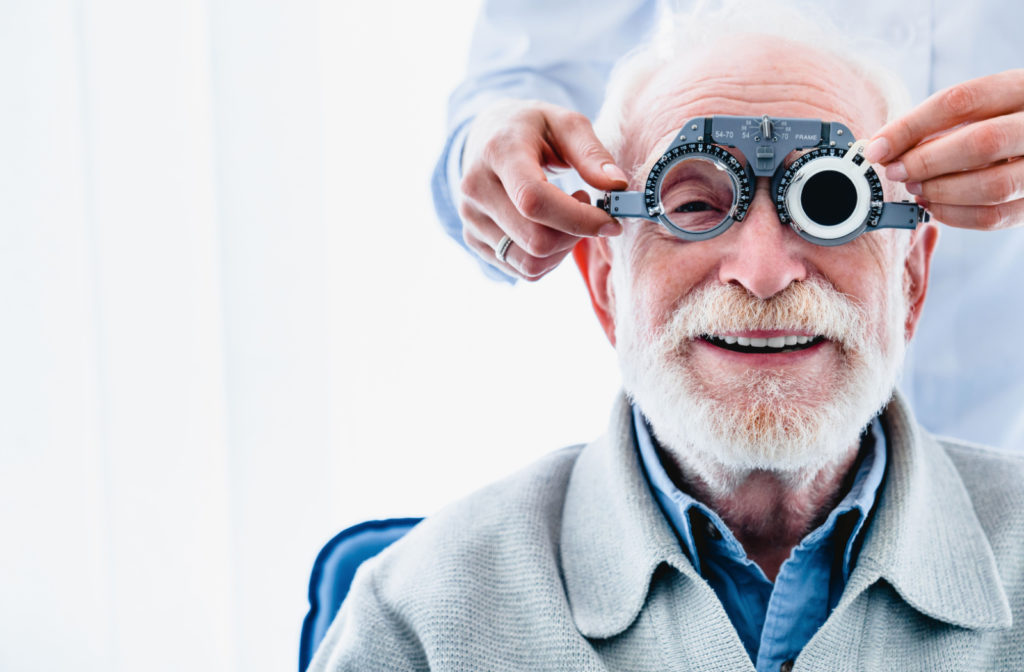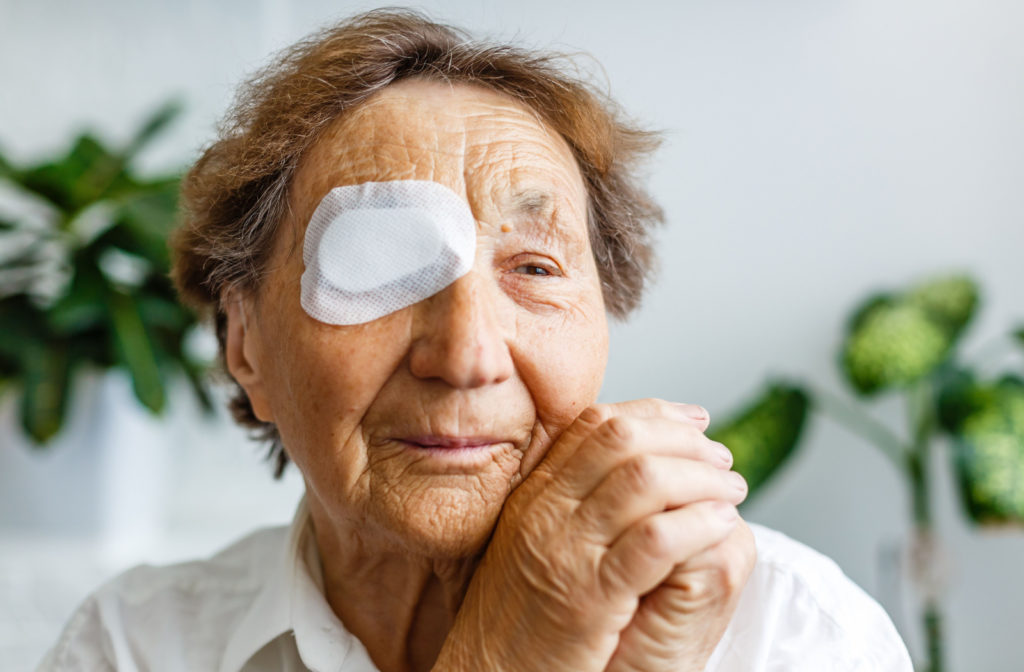Cataracts are a common eye disease affecting millions of Canadians. It’s a condition where the natural lens in the eye becomes clouded, causing blurry vision and difficulty seeing, especially in low-light conditions. If left untreated, cataracts can lead to significant vision loss.
Optometrists can diagnose cataracts and help you stay ahead of their development. Minor cataracts can be corrected with prescription eyewear, improved lighting, and visual aids. However, as they progress, you may need cataract surgery. Cataract surgery is a common treatment for advanced cataracts and is usually covered by OHIP.
Your optometrist can help you navigate this process and help eligible patients understand their options.
What Are Cataracts?
Cataracts are the clouding of the eye’s natural lens. This lens is located behind the pupil and iris (the coloured part) and helps focus light on the retina, the light-sensitive tissue at the back of the eye. A transparent, healthy lens allows light to easily pass through the eye to form sharp images on the retina.
Cataracts develop when proteins in the lens start to break down and clump together, which scatters light and makes things look blurry or hazy.
The leading cause of cataracts is age. However, other factors can increase the risk of developing cataracts, such as:
- Smoking
- Excessive exposure to sunlight
- Certain medications (e.g., corticosteroids)
- Underlying medical conditions such as diabetes.
Some kids are born with cataracts, which are called congenital cataracts. Others may develop them due to eye injuries.
Symptoms of Cataracts
Initially, cataracts may not cause any noticeable vision problems. However, as they grow, they cause a gradual, or sometimes rapid, decline in vision that can significantly affect daily activities such as reading, driving, and recognizing faces.
Some of the common symptoms of cataracts include:
- Blurred or dim vision
- Sensitivity to light
- Halos around lights
- Difficulty seeing at night
- The fading of colours
Cataract Surgery

Cataracts can be removed with cataract surgery. This surgery is low-risk and effective with a minimal recovery time.
However, minor cataracts can be managed with glasses or contact lenses or using better lighting or magnifying aids when reading or performing close-up tasks.
OHIP covers the cost of preoperative eye measurements using ultrasound, which can help select the most appropriate lens implant. However, other optional preoperative measurement techniques are not insured.
To be eligible for OHIP-covered cataract surgery, patients must have a surgery referral from an optometrist or an ophthalmologist and submit it to an OHIP-covered facility.
OHIP covers the cost of surgeon fees and standard lens implants. However, non-insured services include special feature implants, additional procedures, specialized diagnostics, and optional lasers.
Discuss with your optometrist the cost of non-insured services, if any, to help you make an informed decision. You have the right to know your options and choose to pay these additional costs, but you can’t pay for a faster surgery.
What Procedures Does OHIP Cover?
OHIP covers more than just cataract surgery. It also covers medically necessary eye health services, including:
- Youth 19 and younger: 1 major eye exam every 12 months and minor assessments.
- Adults 20–64 with an eligible eye medical condition: 1 major eye exam every 12 months with 2 additional follow-up minor assessments.
- Adults 65+ without an eligible medical condition: 1 major eye exam every 18 months and 2 follow-up assessments.
- Adults 65+ with eligible medical conditions: 1 major eye exam every 12 months with 2 additional follow up assessments
Although most individuals opt for a yearly eye exam to update their contact lens or glasses prescription, a comprehensive eye exam can also help identify early signs of ocular diseases.
OHIP has a list of eligible medical conditions. Talk to your optometrist to find out if you’re covered. Fortunately, cataract surgery is covered by OHIP, as it’s considered medically necessary to improve quality of life and prevent significant vision loss.
OHIP also covers treatments for:
- Glaucoma
- Diabetes
- Retinal disease
- Corneal disease
However, if your surgery or treatment is elective, you may need to pay out-of-pocket since OHIP only covers medically necessary surgeries.
Eye Conditions Treated at Headwaters Optometry
Headwaters Optometry offers treatment for a range of eye conditions, including cataracts, glaucoma, macular degeneration, pink eye, and diabetic eye diseases. Our team of optometrists is committed to providing exceptional patient care and staying up to date on the latest diagnostic and treatment options in eye care.
We can co-manage your procedure and guide you through diagnosis, surgery, and follow-up care, helping you have all the information and support you need.
If you’re experiencing vision problems or have a history of eye disease, we recommend booking an eye exam with one of our optometrists. We can assess the health of your eyes and create a treatment plan that meets your needs.
Remember to check your personal insurance benefits to get the most of them as well!




